Moga Magicians
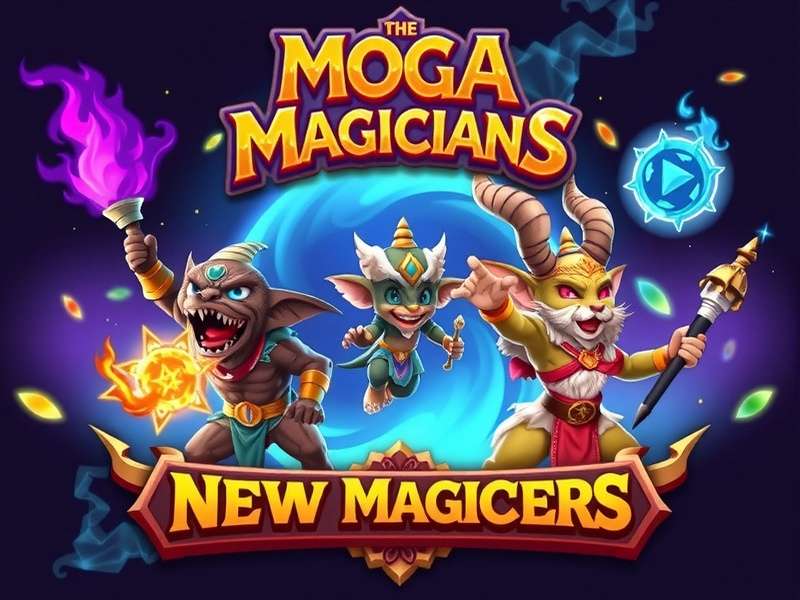
Overview of Moga Magicians
Moga Magicians is India's most beloved fantasy role-playing game (RPG), crafted with love by Desi Wizards Studio, a team of Indian game developers passionate about bringing our rich mythological heritage to life through gaming. Launched in 2022, the game has taken the Indian gaming community by storm, blending immersive storytelling with authentic Indian magical traditions.
Unlike Western fantasy games that draw from European mythology, Moga Magicians dives deep into the diverse magical lore of India – from the Vedic mantras of North India to the tantric practices of East India, and from the folk magic of rural Punjab to the ancient siddhis of South India. This rootedness in local culture is what makes the game truly special for Indian players.
The name "Moga Magicians" comes from Moga, a vibrant town in Punjab known for its rich folk tales of magic and mysticism. The developers chose this name to honor small-town India's contribution to our magical heritage, which often gets overshadowed by grand epics.
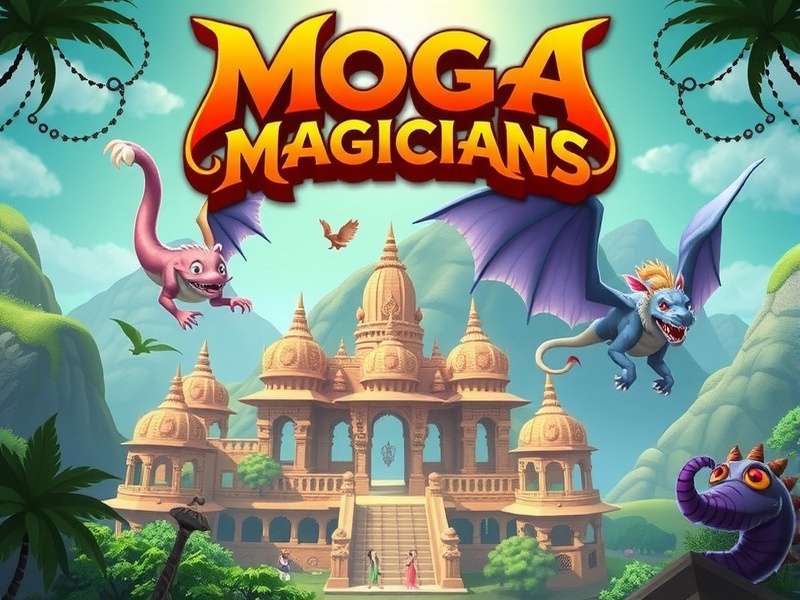
In Moga Magicians, players take on the role of a young magician from their chosen region of India, learning ancient spells, taming mythical creatures, and protecting the world from dark forces that threaten to destroy the balance between magic and reality. The game's open world is a beautiful reimagining of India, where magical elements blend seamlessly with everyday life – much like how our grandmothers used to tell stories of gods walking among humans.
Available on Android, iOS, and PC, Moga Magicians follows a free-to-play model with cosmetic items and convenience features available for purchase. This accessibility has helped it reach players across all age groups and economic backgrounds in India.
What truly sets Moga Magicians apart is its respect for cultural nuances. The game consultants included pandits, folk artists, and mythology scholars from different regions to ensure that the magical practices depicted are accurate and respectful of their origins. This attention to detail has earned the game praise not just from players, but also from cultural experts.
Gameplay of Moga Magicians
The gameplay of Moga Magicians combines elements of open-world exploration, turn-based combat, and character customization, all wrapped in an Indian magical setting. The controls are designed to be intuitive for new players while offering enough depth for seasoned gamers to master.
At its core, Moga Magicians is about mastering "prana" – the life force that flows through all things, which forms the basis of all magic in the game. Players learn to channel this prana through mantras, mudras (hand gestures), and yantras (sacred diagrams) to cast spells and perform magical feats.
Character Creation in Moga Magicians
When starting Moga Magicians, players first choose their character's region of origin, which determines their initial magical abilities and starting area:
North India: Characters from Punjab, Haryana, Uttar Pradesh, and Jammu & Kashmir start with knowledge of Vedic mantras and healing magic. Their starting area is a magical version of the Indo-Gangetic plain, with floating ashrams and sacred rivers.
South India: Characters from Tamil Nadu, Kerala, Karnataka, and Andhra Pradesh begin with expertise in siddhi-based magic and elemental spells. Their starting zone features magical temples, backwaters with water spirits, and Western Ghats with ancient magical trees.
East India: Characters from West Bengal, Bihar, Odisha, and Assam start with tantric magic and the ability to communicate with spirits. Their initial area includes magical versions of the Sunderbans, Himalayan foothills, and ancient Buddhist stupas.
West India: Characters from Maharashtra, Gujarat, Rajasthan, and Goa begin with folk magic and illusion spells. Their starting region features magical forts, desert oases with jinns, and coastal areas with sea spirits.
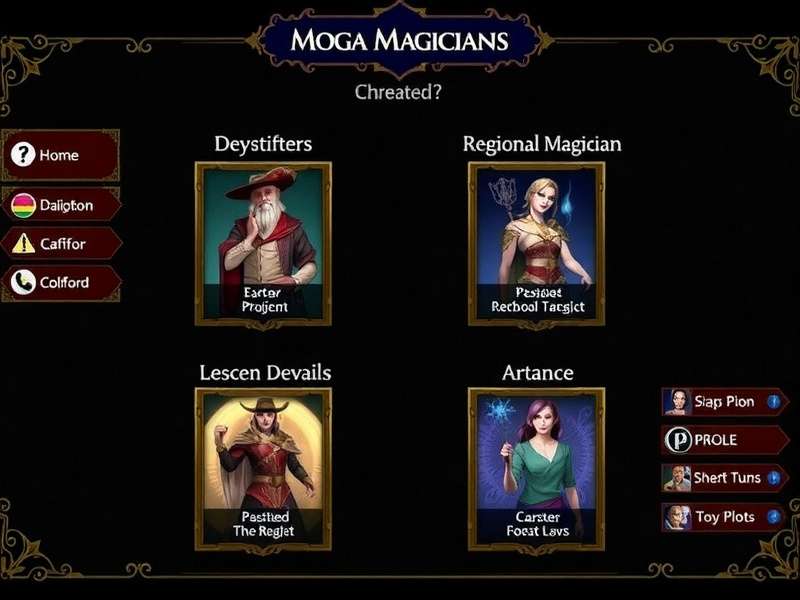
Magic Systems in Moga Magicians
Moga Magicians features four distinct but interconnected magic systems, each rooted in different Indian traditions:
Mantra Magic: Based on sacred sounds and chants from the Vedas and Upanishads. These spells require precise pronunciation (the game includes regional voice actors for correct intonation!) and are most effective for healing, protection, and purification. A well-cast "Om" mantra can dispel dark magic or restore health to allies.
Tantric Magic: Focuses on channeling energy through rituals and symbols. These spells are often more aggressive, used for combat and controlling elements. Tantric magic in the game includes spells like "Agni Kund" (fire pit) that summons a circle of protective fire, or "Vayu Vashikaran" (wind control) that pushes back enemies.
Siddhi Magic: Derived from yogic practices, these are magical abilities gained through spiritual mastery. Siddhi spells include "Anima" (becoming tiny to pass through small spaces), "Mahima" (growing large to intimidate enemies), and "Laghima" (becoming light to fly short distances). These are some of the most versatile spells in Moga Magicians.
Folk Magic: Based on regional traditions, household remedies, and village magic. These spells are often practical and context-specific – like using neem leaves to ward off poison, or turmeric paste to create a protective shield. Folk magic spells often have humorous names, like "Haldi Chaddi" (turmeric pants) which makes your character temporarily invincible to dark magic!
Mythical Creatures in Moga Magicians
No fantasy game is complete without creatures, and Moga Magicians features a wonderful array of Indian mythical beings that players can befriend, battle, or even ride!
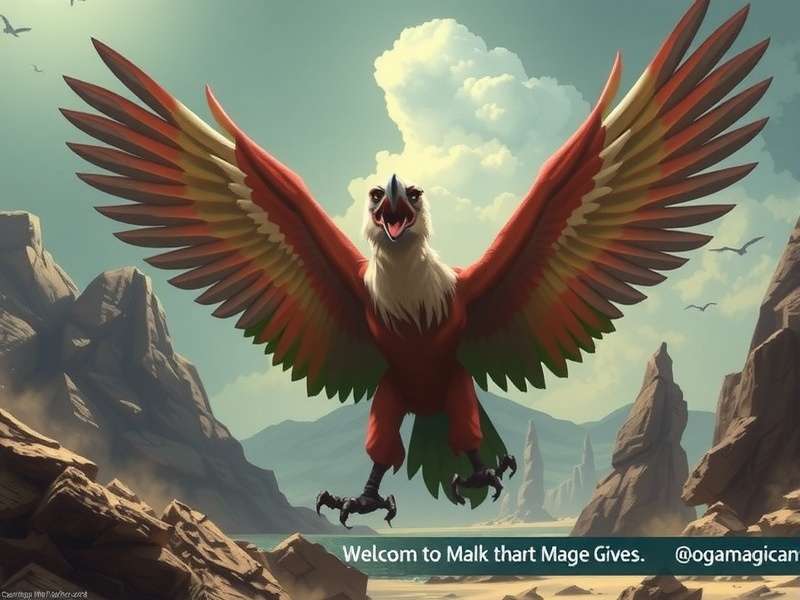
Garuda 🦅
The king of birds, Garuda is a giant eagle-like creature with a white face, red wings, and a golden body. In Moga Magicians, players can earn Garuda's friendship by completing quests in the Himalayan regions. Once befriended, Garuda serves as a fast mount, allowing players to soar across the game world. His special ability is "Sudarshan Vision" which reveals hidden magical items from high above.
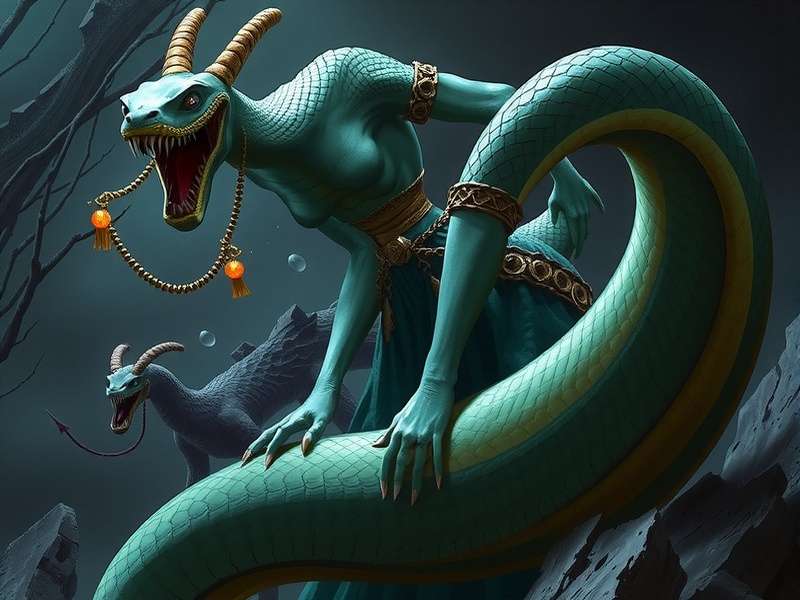
Nagini 🐍
Nagini are serpent-women from Indian folklore, known for their wisdom and magical powers. In Moga Magicians, Nagini can be found near rivers and lakes, particularly in East and South India. They are initially distrustful of humans but can become powerful allies once their trust is gained. Nagini excel at water magic and can heal players with their venom (which has magical properties in the game!).
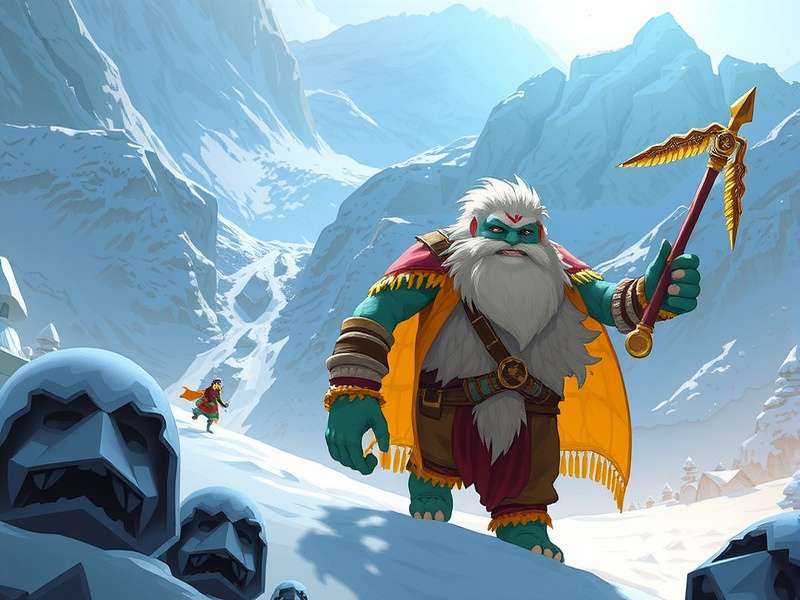
Yeti ❄️
The legendary snow monster of the Himalayas, Yeti in Moga Magicians is a gentle giant who protects mountain villages from evil spirits. Players can befriend Yeti by helping him solve environmental puzzles in the high mountains. Once befriended, Yeti can carry players through difficult terrain and his roar can dispel ice-based magic from enemies.
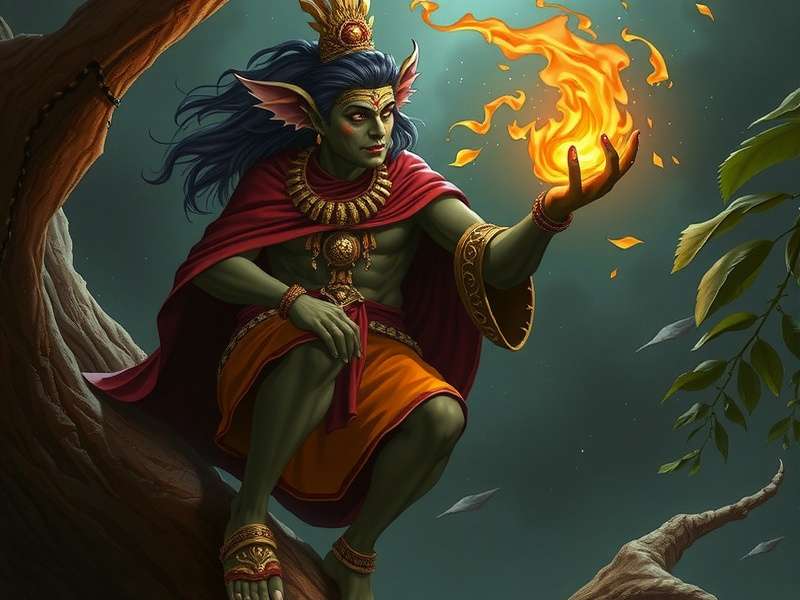
Pishacha 👻
Pishachas are mischievous spirits that feed on negative emotions. In Moga Magicians, they are common enemies in dark forests and abandoned places. Pishachas can shapeshift into animals or even humans to trick players. The best way to defeat them is with mantra magic, particularly those involving light and positivity. Some Pishachas can be reformed through special quests, becoming helpful informants!
Game Modes in Moga Magicians
Moga Magicians offers several game modes to keep players engaged:
Story Mode (Puran Katha): The main campaign where players follow an epic story across India, uncovering the mystery of why dark magic is spreading across the country. The story is divided into "kandas" (books), each set in a different region, with plot twists inspired by local folk tales and epics.
Village Quests (Gaon Ki Kahaniyan): Side quests that take players to small villages, helping locals with magical problems – from curing a curse on a crop field to retrieving a stolen sacred item. These quests offer a deeper look into regional traditions and often have heartwarming stories.
Magic Duels (Jadu Yudh): Player vs Player (PvP) battles where magicians test their skills against each other. Duels take place in magical arenas inspired by Indian landmarks – from a floating arena above the Taj Mahal to a ring inside the Meenakshi Temple.
Raid Bosses (Asur Vadh): Cooperative gameplay where teams of up to 10 players join forces to defeat powerful demons (asuras) that threaten the game world. These raids require careful planning and using complementary magic types – much like how gods in our epics worked together to defeat evil.
Daily Challenges (Dinacharya): Small, daily quests that help players practice different magic types. Completing these earns "prana points" which can be used to upgrade spells. Examples include "Heal 5 villagers with mantra magic" or "Defeat 3 Pishachas using folk magic."
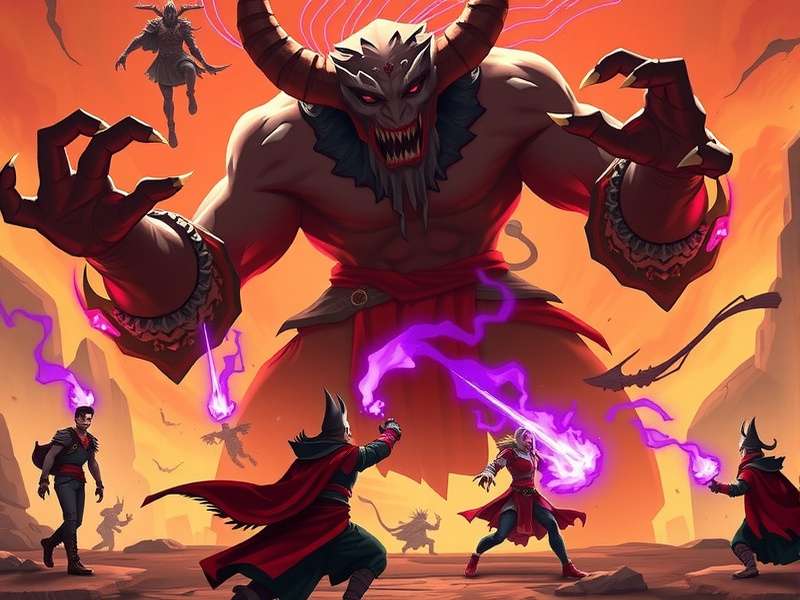
Download Statistics & Player Base in India
Since its launch in 2022, Moga Magicians has achieved phenomenal success in the Indian gaming market. Its unique blend of familiar mythology and engaging gameplay has resonated with players across the country, making it one of the fastest-growing Indian games of all time.
Key Player Statistics 📊
The highest number of Moga Magicians players come from Maharashtra, followed by Uttar Pradesh, Tamil Nadu, and West Bengal – reflecting the game's strong regional appeal across India. What's particularly notable is the game's popularity in small towns and rural areas, where 65% of its player base resides.
Unlike many mobile games that skew male, Moga Magicians has achieved almost gender parity with 45% female players. This is largely due to the game's inclusive character designs, storylines that feature strong female mythological figures, and marketing campaigns that have actively reached out to female gamers.
Player engagement is also exceptionally high, with the average player spending 45 minutes per day in the game – significantly above the mobile RPG average of 25 minutes. This is attributed to the game's daily events, community challenges, and regularly updated content that keeps players coming back.
During major Indian festivals, Moga Magicians sees a 300-400% increase in active players. The Diwali 2023 event, for example, attracted over 35 million unique players in a single week, with many families playing together – parents helping children recognize mythological references from their childhood stories.
The game's success has also led to several real-world collaborations. In 2023, Moga Magicians partnered with the Ministry of Tourism to create in-game tours of famous Indian heritage sites, encouraging players to visit these places in real life. This initiative was so successful that it led to a 20% increase in tourist visits to some lesser-known sites featured in the game.
Educational institutions have also taken notice – several schools in Rajasthan and Kerala have started using Moga Magicians as a fun way to teach students about Indian mythology and regional cultures, with custom lesson plans based on the game's content.
Localization & Regional Versions
One of the key reasons for Moga Magicians' widespread popularity is its exceptional localization – the game doesn't just translate content into different languages, but adapts the entire gaming experience to resonate with players from different regions of India.
The development team worked with over 50 regional consultants, linguists, and cultural experts to ensure that each version of the game feels authentic to its target audience. This commitment to cultural accuracy has made Moga Magicians more than just a game – for many players, it's a celebration of their local heritage.
Language Support 🗣️
Moga Magicians supports 15 Indian languages, with voice acting and text localization for each:
- Hindi (with regional variations like Bhojpuri and Haryanvi)
- Bengali
- Telugu
- Tamil
- Marathi
- Gujarati
- Kannada
- Malayalam
- Punjabi
- Odia
- Urdu
- Assamese
- Maithili
- Rajasthani
- Kashmiri
What's impressive is that the localization goes beyond direct translation. For example, magic spells in the Punjabi version use words from Gurmukhi that have specific spiritual meanings, while the Tamil version incorporates terms from Sangam literature. This attention to linguistic nuances has earned praise from language experts across India.
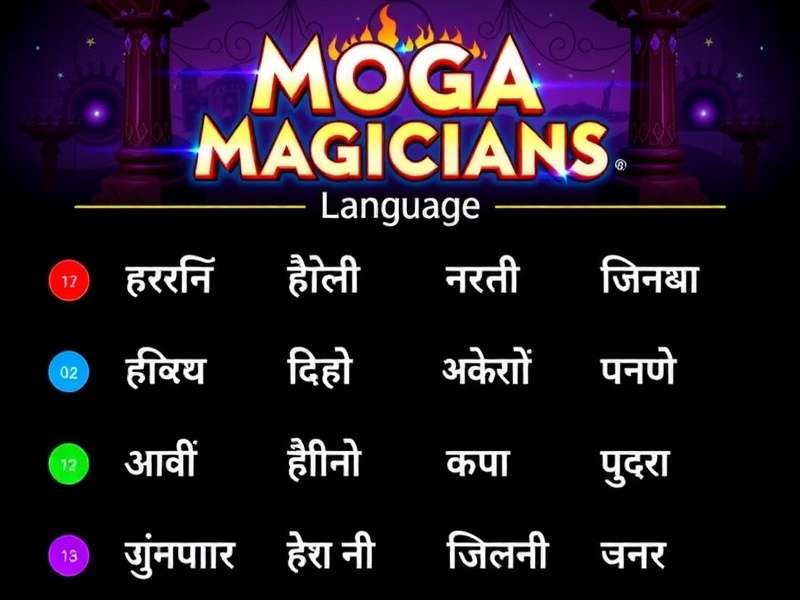
Regional Content Differences 🌍
Each regional version of Moga Magicians includes unique content that reflects local myths, traditions, and even landscapes:
North India Version:
• Features additional quests based on Punjabi folk tales like "Heer Ranjha" and Uttar Pradesh's "Rama Leela" traditions
• Includes special winter events for Lohri and Makar Sankranti, with kite-flying mini-games
• Magical items include "phulkari" (embroidered) spell books and "charkha" (spinning wheel) that generates prana
• Food-based power-ups like "gajar ka halwa" (carrot pudding) and "jalebi" that restore health and magic
South India Version:
• Adds quests inspired by Tamil epics "Silappatikaram" and Kerala's Theyyam rituals
• Features a special Pongal event where players harvest magical crops and feed them to mythical cows
• Unique items include "kolam" (rangoli) stencils that create protective barriers and "mangalsutra" amulets
• Power-ups include "payasam" (sweet porridge) and "vada" that grant temporary invincibility
East India Version:
• Includes quests based on Bengali "Thakurmar Jhuli" folk tales and Assamese "Burhi Aair Xadhu" stories
• Features a grand Durga Puja event with immersion in pandal hopping and idol worship rituals
• Unique items include "alpana" (floor art) brushes and "sindoor" (vermilion) packets for protection spells
• Power-ups like "rasgulla" and "pitha" that enhance magic power during battles
West India Version:
• Adds quests inspired by Rajasthani "folk tales of kings and magicians" and Gujarati "Akbar-Birbal" stories
• Features a vibrant Navratri event with Garba dance mini-games that charge magic power
• Unique items include "bandhani" (tie-dye) cloaks that grant invisibility and "jharokha" (window) mirrors that reveal hidden items
• Power-ups like "fafda-jalebi" and "gatte ki sabzi" that provide energy boosts during long quests
All these regional differences mean that players from different parts of India have unique experiences in Moga Magicians, yet the core gameplay and story remain connected – much like India's unity in diversity.
Music & Sound Design 🎶
The audio localization in Moga Magicians is equally impressive. Each regional version features music using local instruments:
• North India: Sitar, tabla, and harmonium with influences from Hindustani classical music
• South India: Veena, mridangam, and nadaswaram with Carnatic music elements
• East India: Sarod, esraj, and dhak drum with Baul and Rabindra Sangeet influences
• West India: Rajasthani sarangi, Gujarati dholak, and Goan mandolin with folk music styles
The game's theme song has also been recorded in each regional language by popular local singers, becoming viral hits in their own right.
Player Reviews & Feedback
Moga Magicians has received overwhelmingly positive reviews from Indian players, who appreciate how the game honors their cultural heritage while providing engaging gameplay. Here's what some players from different regions have to say:
"Yaar, Moga Magicians ne toh hamari Gujarati culture ko bilkul sahi se represent kiya hai! The Navratri event mein Garba dance se magic power badhane wala concept – it's just like our real celebrations! Maine apne dada ko bhi game khelane sikhaaya, aur woh ab roz apne favorite 'fafda-jalebi' power-up collect karne ke liye online aata hai. Best part? The Gujarati voice acting – proper 'vahu' and 'saas' dialogues feel so real!"
"I can't believe how accurately Moga Magicians has captured Durga Puja! The pandals in the game look exactly like the ones in Kolkata – even the 'dhak' beats during the event give me goosebumps. As a Bengali, I feel so proud seeing our 'thakurmar jhuli' stories as quests. My daughter is now asking me about all the mythological characters, which is helping her learn our culture. The Bengali dialogues are so natural – it's like talking to my neighbors!"
"Moga Magicians is a brilliant game for us Tamilians! The Tamil voice acting is top-notch – no weird translations, just natural speech. The Pongal event where we feed the magical cows is so relatable. My only small complaint is that I wish there were more references to our Sangam literature. But overall, seeing Marina Beach with magical elements and using 'kolam' for protection spells makes me so proud of our culture. Great job, developers!"
"Moga Magicians te meri favorite game hai! The way they've shown Punjab's culture – from phulkari spell books to Lohri celebrations with bonfires that grant magic power – it's just amazing. Main apni family naal milke is game khelti hoon, especially during the Punjabi events. The 'sarson da saag' power-up always makes us laugh! Bahut sohna kaam kiya hai developers ne apni culture nu game vich laake – dil se thanks!"
"Moga Magicians ki Rajasthani version bahut acchi hai! Hamare yahan ke forts, havelis, aur folk tales ko game mein dekhke bahut khushi hoti hai. The 'bandhani cloak' jo humein invisible bana deta hai – yeh to hamari local textiles ka perfect tribute hai. Thoda improvement chahiye tha rural Rajasthan ke references mein, lekin overall, yeh game hamein apni culture par garv feel karaata hai. Mere bachche ab yeh poochte hai, 'Papa, yeh real mein hota hai kya?' aur main unko apni kahaniyan sunata hoon."
"As an Assamese, I was so happy to see Moga Magicians include our Bihu festival and 'Burhi Aair Xadhu' stories! The game's representation of Kaziranga with magical rhinos is beautiful. The Assamese voice acting uses our local dialect perfectly – not some generic 'Hindi with a twist' like other games. My friends and I love the 'pitha' power-ups during Bihu. It's wonderful to see our small state's culture getting such recognition in a popular game!"
Critics have also praised Moga Magicians for its technical achievements. The game runs smoothly even on low-end Android devices, which is crucial for reaching India's diverse mobile market. The graphics are optimized to look stunning on both high-end phones and budget devices, with adjustable settings for players with limited data plans.
Some common feedback for improvement includes adding more content from Northeast India and reducing the grind for certain rare magical items. The developers have been responsive to this feedback – the 2023 winter update added five new Northeast-inspired quests, and they've adjusted the drop rates for rare items based on player input.
Educators have particularly praised Moga Magicians for making Indian mythology accessible to younger generations. A survey by a leading education institute found that 78% of parents felt their children had learned more about Indian culture through the game than through traditional textbooks.
Indian Player Guides & Tips
To help new players master Moga Magicians and experienced players improve their skills, we've compiled essential tips from top Indian players and community experts. These strategies combine gaming expertise with insights into Indian magical traditions!
Beginner's Guide to Moga Magicians 🧙♂️
While you can eventually learn all magic types, your starting region determines your initial strengths. If you're new to RPGs, North India's healing magic is forgiving for beginners. If you prefer action, East India's tantric magic offers powerful attack spells early on. Many Indian players recommend choosing your actual region first – recognizing local landmarks makes the game more immersive!
Prana is the life force behind all magic in Moga Magicians. New players often waste prana on unnecessary spells. Remember: like in real Indian traditions, patience is key! Wait for the right moment to cast powerful spells. Smaller, efficient spells (like using a neem leaf for minor healing) are often better than big, prana-heavy ones for everyday challenges.
These small daily quests are the best way to earn prana points and learn different magic types. Even if you don't have much time, spending 10-15 minutes on daily challenges will help you progress faster. Focus on challenges that match your current magic strengths – this builds muscle memory for battles later!
NPC villagers in Moga Magicians often give valuable hints, free items, or unlock hidden quests – especially if you greet them in their local language (the game recognizes basic phrases!). In Indian culture, respecting elders brings blessings, and this applies in-game too – elderly NPCs usually have the best rewards for polite players!
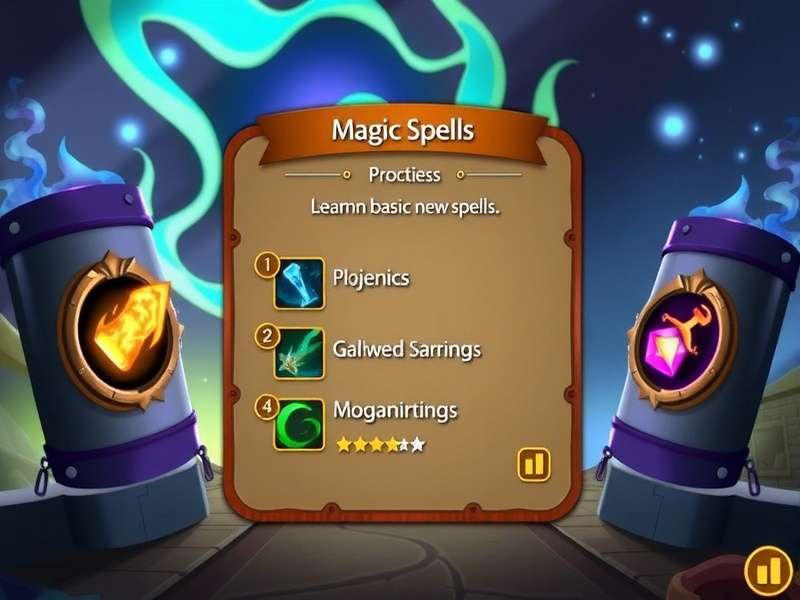
Advanced Strategies for Moga Magicians 🧙♀️
Top players recommend mastering at least two different magic types. A common effective combination is North Indian healing magic with East Indian attack spells – like how a good doctor can both heal and protect. Experiment with regional combinations that reflect India's diversity – you'll be surprised how well South Indian siddhi magic pairs with West Indian illusion spells!
Different mythical creatures in Moga Magicians are vulnerable to specific regional magic, just like in our folk tales:
• Pishachas (dark spirits) fear North Indian mantra magic, especially "Om" chants
• Nagas (serpents) are weak against South Indian fire-based siddhi magic
• Asuras (demons) are most affected by East Indian tantric binding spells
• Jinns (desert spirits) are vulnerable to West Indian folk magic using salt and turmeric
Each region's special events offer unique rewards that can't be obtained otherwise. Set reminders for these based on the Indian calendar:
• January: North India Lohri event (best for fire magic upgrades)
• March: East India Holi event (color-based power-ups)
• October: West India Navratri event (multi-day magic boosts)
• December: South India Pongal event (rare creature encounters)
Guilds in Moga Magicians (called "Sangh") offer protection, shared resources, and access to group quests. Join one with players from your region for better coordination during local events. Guilds that have members from different regions are even better – you can learn cross-regional magic combinations that give you an edge in PvP battles!
Pro Player Secrets from "MagicMasti" (Top 100 Global Player)
We spoke to Rajesh "MagicMasti" Kumar from Patna, who's ranked in the top 100 Moga Magicians players worldwide, to get his expert tips:
"The biggest secret in Moga Magicians is understanding 'jugaad' magic – combining simple spells in creative ways, just like we solve problems in real India! For example, using a basic West Indian illusion spell to make enemies attack each other, then hitting them with East Indian fire magic while they're distracted – it's like using a jugaad to fix something instead of buying a new one!"
"Another pro tip: never underestimate folk magic. Those simple turmeric and neem spells? They're actually the most effective against dark magic because they're rooted in everyday Indian life, which dark forces can't understand. It's like how our grandmothers' remedies sometimes work better than expensive medicines!"
"Finally, participate in community events even if you're busy. The 'Unity Challenges' where players from different regions work together give the best rewards, and they teach you how different magic systems complement each other – much like how India's diversity makes us stronger!"
Regional Expert Tips
From Kerala Player "SiddhiMaster": "In South India version, maximize your 'pattu' (silk) robes – they multiply siddhi magic effects during full moons. The best time to cast powerful siddhi spells is during the actual full moon in real life – the game has a hidden bonus for this!"
From Punjab Player "BhangraMagician": "For North India players, upgrade your 'dhol' (drum) item – playing it during battles boosts all nearby allies' magic power. Perfect for group raids! And during Lohri, the bonfire spell is 50% stronger if cast while moving in a circle – just like real Lohri dances!"
From Gujarat Player "GarbaWizard": "West India players should master the 'garba spin' move during Navratri – spinning while casting illusion spells creates multiple copies of your character. Practice this in the daily dance challenges to get the timing right!"
Localized Events & Celebrations
Moga Magicians truly shines with its seasonal events that celebrate Indian festivals and cultural occasions. These events aren't just reskinned versions of generic game events – they're deeply rooted in local traditions, making players feel a strong connection to their culture while playing.
Each event is developed with input from regional experts to ensure authenticity, and they often include mini-games based on real festival activities. These events are so popular that many Indian families plan gaming sessions around them, making Moga Magicians part of their festival celebrations!
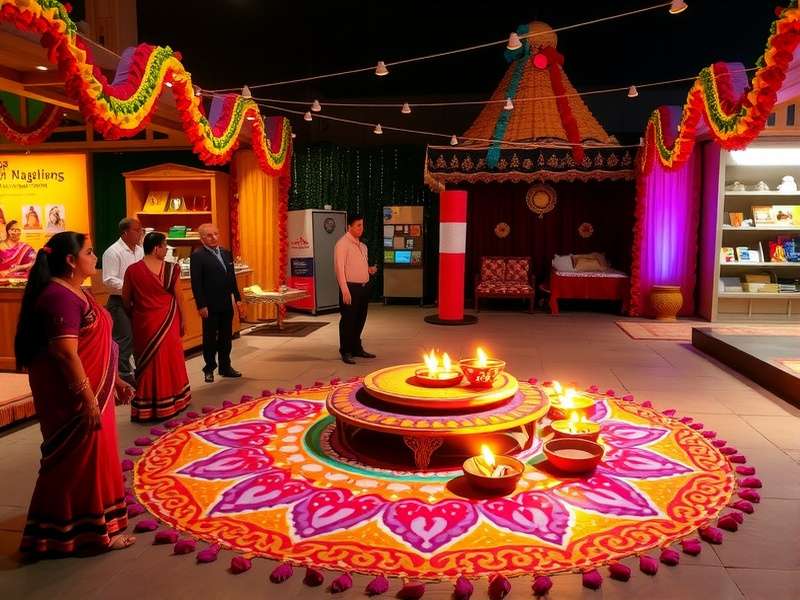
Diwali Magic Festival ✨
The biggest event in Moga Magicians calendar, the Diwali celebration transforms the entire game world with diyas (oil lamps), rangolis (colorful patterns), and fireworks. Players can participate in several festival activities:
• "Rangoli Protection" – drawing rangoli patterns to create magical barriers against dark spirits
• "Diya Lighting" – lighting lamps to guide lost souls to peace, earning prana points
• "Lakshmi Pujan" – performing a virtual puja to receive the goddess's blessings, which grant special loot boxes
• "Firecracker Battles" – using magical fireworks to defeat waves of dark creatures
Rewards include exclusive "diya wands," "rangoli cloaks," and a special "Lakshmi's Blessing" buff that increases loot drops for 7 days. The event ends with a grand fireworks display over a magical version of the player's regional capital city.
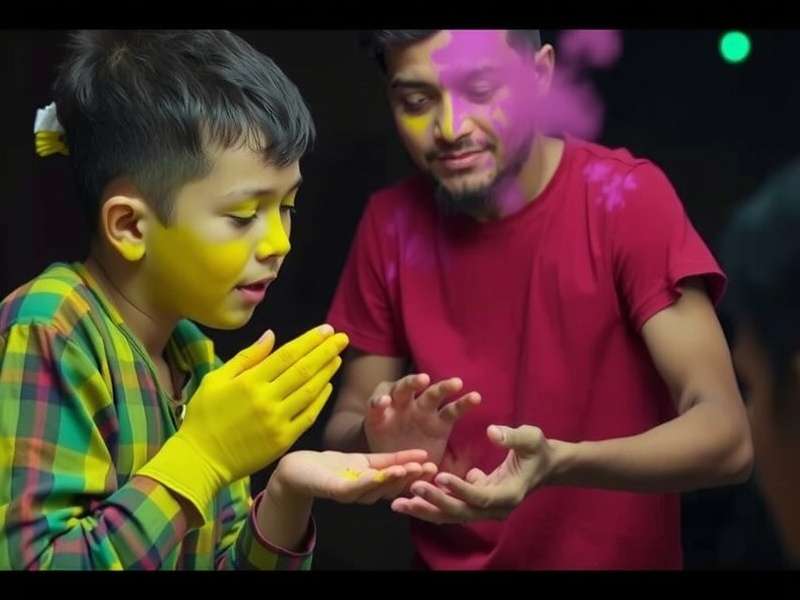
Holi Color Magic Festival 🎨
Holi in Moga Magicians is a vibrant celebration of color and joy, with the game world transformed into a rainbow of hues. The event features unique color-based magic mechanics:
• "Color Throw" – throwing magical gulal (colored powder) at other players or NPCs to grant them temporary buffs
• "Rang Barse Challenge" – dancing in rain showers of colored magic to charge special spells
• "Bhang Ghat" – collecting special items from a magical bhang shop to create powerful potions
• "Dulhan Chasing" – a playful mini-game based on Holi traditions where players chase a magical bride character to receive rewards
Each color grants a different bonus: red increases attack power, green boosts healing, blue enhances speed, and yellow increases prana regeneration. The event's exclusive reward is a "Holi Pichkari" (water gun) that can cast multiple color spells at once!
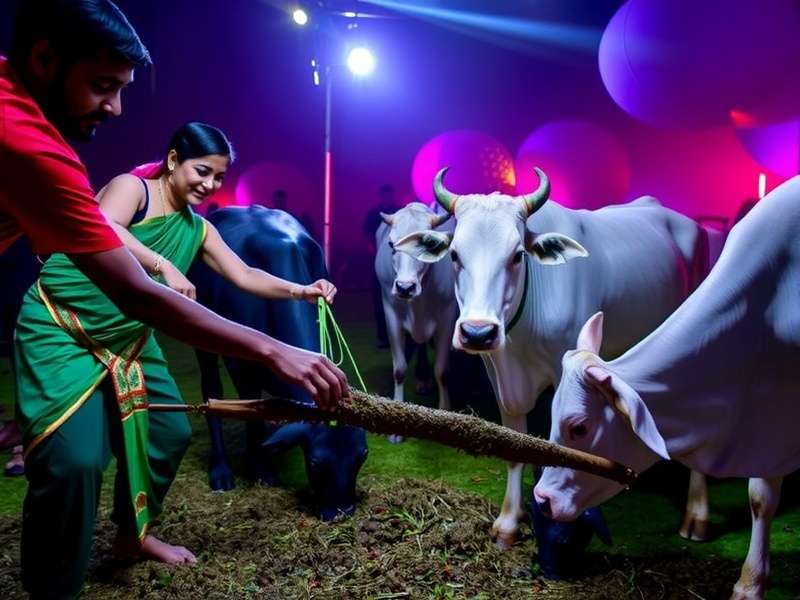
Pongal Harvest Festival 🌾
South India's Pongal festival gets a magical twist in Moga Magicians, celebrating the harvest with nature-based activities:
• "Rice Cooking" – preparing virtual pongal in a magical pot, with better quality dishes granting better rewards
• "Cow Worship" – feeding magical cows (that grant blessings) with special pongal dishes
• "Jallikattu Challenge" – a spiritual version of the traditional bull-taming sport, where players use magic to calm and befriend magical bulls
• "Harvest Collection" – gathering magical crops that have grown due to special festival magic
Rewards include "Pongal Amulet" that increases nature magic power, "Cow Blessing" pet that follows players and finds hidden items, and special harvest-themed spells like "Rice Rain" that heals allies in an area.
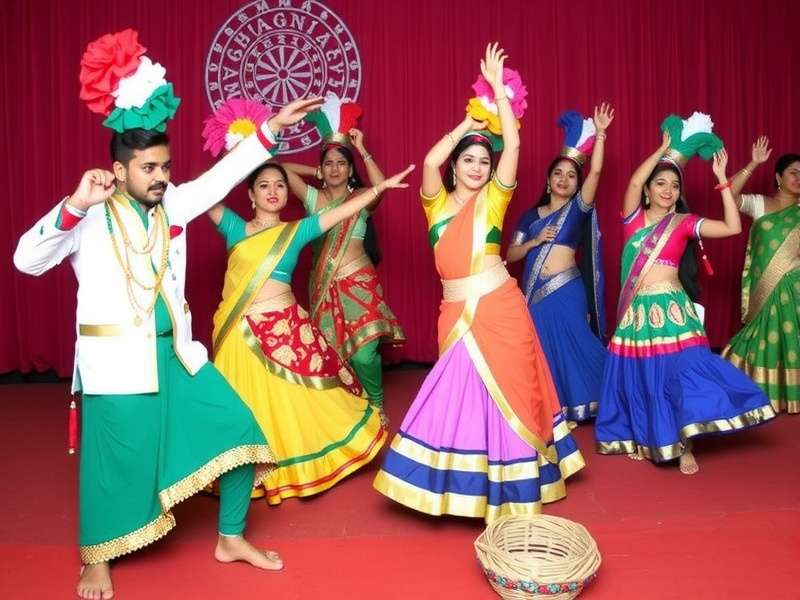
Navratri Devi Worship Festival 💃
West India's Navratri celebration in Moga Magicians is a nine-day event honoring the divine feminine, with each day dedicated to a different form of Devi (goddess):
• "Garba Magic" – performing Garba and Dandiya dances to charge special Devi spells
• "Nine Forms Challenges" – each day features a quest based on one of Durga's forms, testing different magic skills
• "Prasad Offering" – preparing virtual prasad for each Devi form to receive blessings
• "Ravan Dahan" – a grand finale where players work together to defeat a giant Ravan boss using combined magic
Each day's rewards correspond to that day's Devi form, with the final reward being a "Durga Avatar" skin that lets players temporarily transform into the goddess with ultimate magic power. The Garba dance mechanics have become so popular that real-life Garba groups have started using them for practice!
Other popular events in Moga Magicians include Eid (with magic carpet races and sweet-making mini-games), Christmas (featuring magical Santa characters with Indian twists), and regional events like Bihu (Assam), Onam (Kerala), and Guru Nanak Jayanti (with special Sikhism-inspired magic).
What makes these events special is how they bring the Indian gaming community together. During the 2023 Diwali event, over 10 million players participated in the "National Rangoli Challenge," where players from different states collaborated to create a virtual rangoli spanning the entire game map – a beautiful digital representation of India's unity in diversity.
Community & Discussions
The Moga Magicians community is one of the most active and inclusive gaming communities in India, with players from all age groups, regions, and backgrounds coming together to share their love for the game and Indian mythology.
Unlike many gaming communities that can be toxic, the Moga Magicians community tends to be supportive and educational, with experienced players helping newcomers learn both game mechanics and the cultural context behind different magic systems.
Popular Community Platforms 🌐
WhatsApp Groups: There are over 50,000 regional Moga Magicians WhatsApp groups across India, often organized by language or state. These groups are incredibly active, with players sharing tips, organizing in-game events, and even helping each other with real-life problems – true to Indian community spirit!
Facebook Groups: The official Moga Magicians Facebook group has over 3.5 million members, making it one of the largest gaming communities on the platform in India. Developers regularly post updates here and even poll members for feedback on new content.
Reddit: The r/MogaMagicians subreddit is popular among English-speaking players, with daily discussions on magic strategies, creature taming, and event tips. The subreddit's weekly "Mythology Monday" threads where players share real-life stories related to the game's content have become particularly popular.
YouTube & Gaming Channels: Hundreds of Indian YouTubers have built successful channels around Moga Magicians, with content ranging from gameplay tutorials to deep dives into the game's mythology. The top channels like "Desi Wizard" and "Magic Masti" have over 2 million subscribers each.
Discord: The official Moga Magicians Discord server has separate channels for each region, language, and game mode, with over 1 million members. The server hosts regular community events and AMAs with developers and mythology consultants.
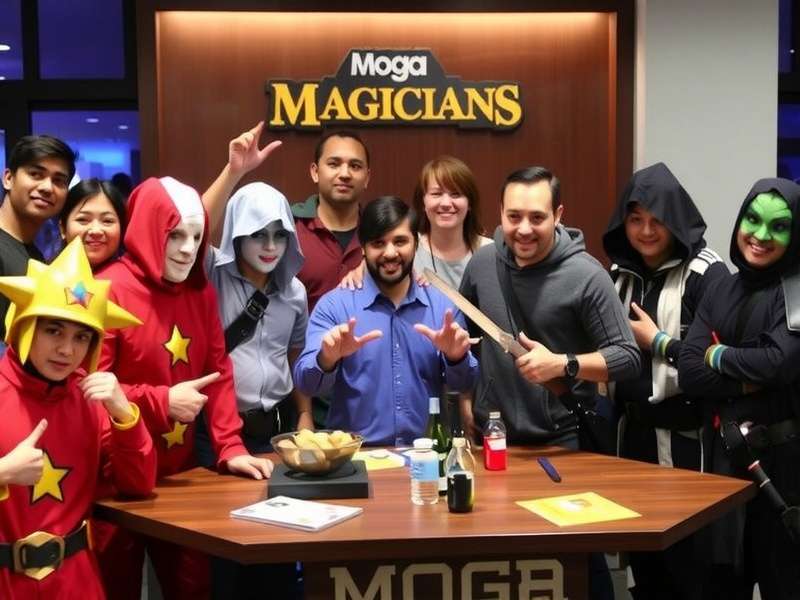
Community Events & Tournaments 🎮
Beyond in-game events, the Moga Magicians community organizes thousands of real-life meetups and tournaments across India. These events often combine gaming with cultural activities, making them family-friendly affairs.
The annual "National Magic Championship" is the biggest event, with regional qualifiers in 25 cities leading up to a grand finale in New Delhi. The 2023 championship had over 100,000 participants, with the winner receiving a cash prize of ₹10 lakhs and a trip to visit mythological sites across India with the game's mythology consultants.
Local communities often organize "Magic Melas" – fair-like events where players can participate in:
• Live Moga Magicians tournaments on big screens
• Workshops on Indian mythology by scholars
• Art contests for Moga Magicians fan art
• Traditional Indian magic shows (jadoo) by local magicians
• Food stalls serving regional dishes featured in the game
Many community events also have a social impact. In 2023, Moga Magicians players organized "Magic for Education" tournaments in 50 cities, with proceeds going to fund libraries and computer labs in rural schools. This initiative raised over ₹2 crores and helped over 10,000 students.
Player-Generated Content 🎨
The Moga Magicians community is incredibly creative, producing a wealth of player-generated content that enriches the game experience for everyone:
Folk Tale Adaptations: Players have written hundreds of short stories expanding on the game's lore, often incorporating local folk tales from their regions. The developers have published the best of these in an official "Moga Magicians Folk Tales" book, with proceeds going to support traditional storytellers.
Fan Art: The game's vibrant visual style has inspired thousands of artworks, from traditional rangoli and madhubani paintings of game characters to digital art. The developers feature the best fan art in loading screens during festival events.
Music Covers: Players have created covers of the game's theme songs in regional styles – from a Bhojpuri folk version to a Carnatic classical adaptation. Some of these covers have become popular on music streaming platforms.
Real-Life Magic Tutorials: Many players have created videos showing how to make the game's magical items using real materials – like making protective amulets or learning basic mudras. These videos often include explanations of the real cultural significance behind these items.
The developers actively encourage this creativity through their "Community Spotlight" program, which rewards top content creators with in-game items, official merchandise, and even opportunities to consult on new content. Several player suggestions – like adding Bihu events and Kashmiri folklore creatures – have been incorporated into official updates.
Future Updates & Roadmap
The developers of Moga Magicians have shared an ambitious roadmap for the game's future, with regular updates planned to keep the content fresh and expand the magical world based on player feedback. Here's what players can look forward to in the coming months:
Upcoming Regions & Content 🌄
Northeast India Expansion: The most highly requested update will add five new Northeast states to the game world, each with unique magic systems and creatures:
• Assam: Magic based on tea leaves and river spirits
• Meghalaya: Cloud and rain magic, with living root bridge structures
• Nagaland: Headhunter spirit magic (handled sensitively with tribal consultant input)
• Manipur: Martial arts magic inspired by Thang-Ta
• Arunachal Pradesh: Tibetan-Buddhist influenced magic with prayer wheel power-ups
Indian Diaspora Worlds: A major update will introduce new realms based on Indian communities abroad:
• "Little India" in Singapore: Fusion of Indian and Chinese magic
• London's Southall: British-Indian magic with tea-based spells
• New York's Jackson Heights: Indo-American magic with street food power-ups
These realms will feature new storylines where players help diaspora magicians preserve their traditions while adapting to new environments.
New Gameplay Features 🆕
Magic School System: Players will be able to build and run their own magic schools, teaching other players (AI or real) their specialized magic skills. This feature is inspired by traditional Indian gurukul systems, where knowledge is passed from teacher to student.
Mythological Epic Quests: New long-form questlines based on India's major epics:
• "Ramayana Quest": Journey through Lanka to retrieve a magical artifact
• "Mahabharata Challenge": Participate in a magical version of the Kurukshetra war
• "Bhagavad Gita Lessons": Philosophical quests that grant powerful wisdom-based magic
These quests will feature choices that affect the story outcome, encouraging multiple playthroughs.
Creature Breeding & Evolution: Players will be able to breed mythical creatures to create hybrid beings with combined abilities – like a Garuda-Nagini cross that can both fly and swim, or a Yeti-Pishacha that can survive in extreme cold and darkness. Each hybrid will have unique lore based on regional stories of mixed creatures.
Technical Improvements & Accessibility
The developers are also working on several technical improvements to make Moga Magicians more accessible to all Indian players:
• Reduced data usage for players with limited internet plans
• Offline mode for story quests, allowing rural players with intermittent connectivity to progress
• Improved accessibility features for players with disabilities, including voice commands for magic spells and color-blind friendly interfaces
• Optimization for entry-level smartphones (under ₹10,000), ensuring more Indians can enjoy the game
Perhaps most exciting is the planned "Moga Magicians: Real World" augmented reality (AR) app, which will let players see magical creatures and cast spells in their real-life surroundings using their phone cameras. Imagine seeing a Garuda flying over your local temple or casting a healing spell on your actual house plant – this feature could revolutionize how Indian players interact with mobile games.
With its commitment to listening to player feedback and expanding India's magical lore, Moga Magicians is poised to remain India's favorite fantasy game for years to come, continuing to celebrate our rich cultural heritage while pushing the boundaries of mobile gaming.
Why Moga Magicians is a Milestone for Indian Gaming
Moga Magicians represents more than just a successful mobile game – it's a milestone in Indian gaming history, proving that games rooted in local culture can achieve both critical acclaim and commercial success without compromising on quality or authenticity.
By drawing from India's rich tapestry of myths, traditions, and regional diversity, Moga Magicians has created something truly unique – a game that entertains while educating players about their heritage. For many young Indians, the game has sparked an interest in their own culture that traditional education methods failed to ignite.
The game's success has also paved the way for other Indian developers to create culturally rooted games, leading to a renaissance in Indian gaming that celebrates our identity rather than mimicking Western trends. Moga Magicians has shown that "Indian" isn't a niche market – it's a rich source of inspiration with global appeal.
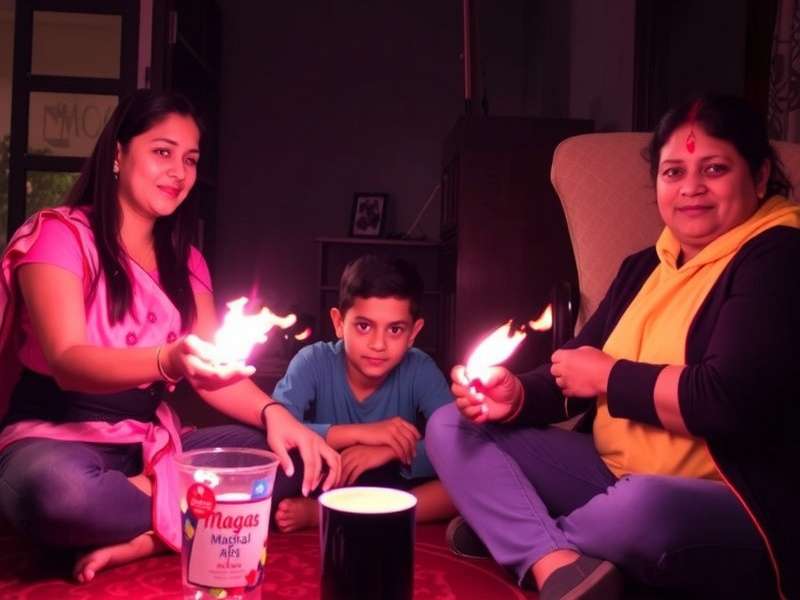
What's most heartening is how Moga Magicians has brought Indian families together. Parents and grandparents, who often dismiss video games as a waste of time, find themselves drawn into the game's familiar cultural elements, sharing stories and memories as they play with their children. This intergenerational connection is perhaps the game's greatest achievement.
Whether you're a hardcore gamer or someone who rarely plays video games, Moga Magicians offers something to enjoy. It's a game that makes Indians proud of their culture while providing hours of entertainment. It's a game that teaches us about our diversity while celebrating our unity. And most importantly, it's a game that was made for us, by us.